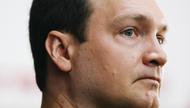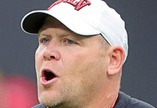Professional sports in Las Vegas couldn’t be a hotter topic than it is today. But while locals and fans celebrate recent championships and successful events and look to future expansion, it’s easy to overlook the significant history of sports in the Valley and how we got here.
That’s why UNLV’s Oral History Research Center is seizing the moment to launch a two-year project dubbed Game On! The Oral History of Las Vegas Sports, collecting stories from the people who shaped this aspect of local life through the decades. The center’s founding director Claytee White and project manager Stefani Evans will lead a team gathering stories about today’s hockey, football, soccer and basketball teams, but also reaching back to learn more about motorsports, baseball, mixed martial arts, tennis, rugby, rodeo, golf, pro wrestling and many more sports subjects.
Launched with a $30,000 gift from a private donor, the project’s oral histories will be transcribed, digitized and eventually made available to researchers and interested parties through the UNLV Special Collections & Archives Portal. White discussed the project recently with the Weekly.
Why is it important to tell the story of sports in Las Vegas?
Because people think it’s just starting. While we want to include all of these new arrivals in this project, we want to also tell the story of boxing at Caesars Palace, and golf in the 1950s. There was a baseball team in the Black community in the 1930s called the Giants, and we don’t even have anyone we can interview about it, but I want to be able to let people know we had community sports back then. Frank Hawkins, who played for the Raiders when they were in Oakland, grew up here. He has a championship ring for the Raiders and when he was a little boy in the Black community, he would walk around with a football under his arm. We just have so many wonderful stories we need to tell.
What do we gain from collecting these oral histories versus a different style of documentation?
We get to hear their voices, people who actually participated in a lot of cases, and people who were in the families of those who participated. Oral history allows everybody to be involved, not just those written about in the newspaper or who we hear from and about on TV or radio shows. And this allows communities that have been silenced for so long to be involved. A man in the Latinx community told me about horse races in the desert and we want to [talk to him] about what’s beyond organized sports, those we don’t know a whole lot about.
Las Vegas has learned pretty quickly about the less obvious impacts sports can have on a community, and this project will certainly continue that education.
We want to talk to Bill Foley and Mark Davis, and some of those players who have made [that impact] and ask about their memories, how they got into sports. Our first interview was with a woman who works for the Library District who was part of the corporate challenges they used to have in the city; she played ping pong. She’s a very genteel lady until you start talking about ping pong—her whole personality changes. Sports can do something beyond the economics. It builds the community in a way that allows for competition and teamwork … and establishes relationships for years to come.
Are there specific teams, events or sports stories you’re particularly excited to uncover?
I want to find out all about lacrosse, and about pickleball. I don’t know where pickleball came from, but all of a sudden, it was everywhere. Of course we’re going to do tennis and hopefully talk to Andre Agassi and Steffi Graff. The LGBTQ community had sports events back in the ’60s and ’70s and we’re learning more and more about that, and we want to include some of those in this project. And something new is esports—college kids all over the country are involved in esports. We’re planning to collect maybe 140 interviews, so we’re going to have to be careful and not get too excited when we interview someone from the Las Vegas Aces team, for example, because we’re going to want to talk to the whole team but we’ll have to hold ourselves back so we can devote the right number of interviews to each subject.
I grew up in Las Vegas when UNLV won the men’s basketball national championship and I still remember how that captivated the community, and we’ve seen it again with the Golden Knights. Do you think an earlier milestone like that UNLV title will remain important and continue to resonate as we grow and accomplish other achievements in sports?
Yes. It’s always going to be important. I’m from a small town in North Carolina, and if someone mentions that Claytee lives in Las Vegas, the first thing they say is, ‘Oh, the Runnin’ Rebels.’ That will always mean something to this town. And we want to interview one of [Jerry Tarkanian’s] sons that played at UNLV for this project.
Click HERE to subscribe for free to the Weekly Fix, the digital edition of Las Vegas Weekly! Stay up to date with the latest on Las Vegas concerts, shows, restaurants, bars and more, sent directly to your inbox!





